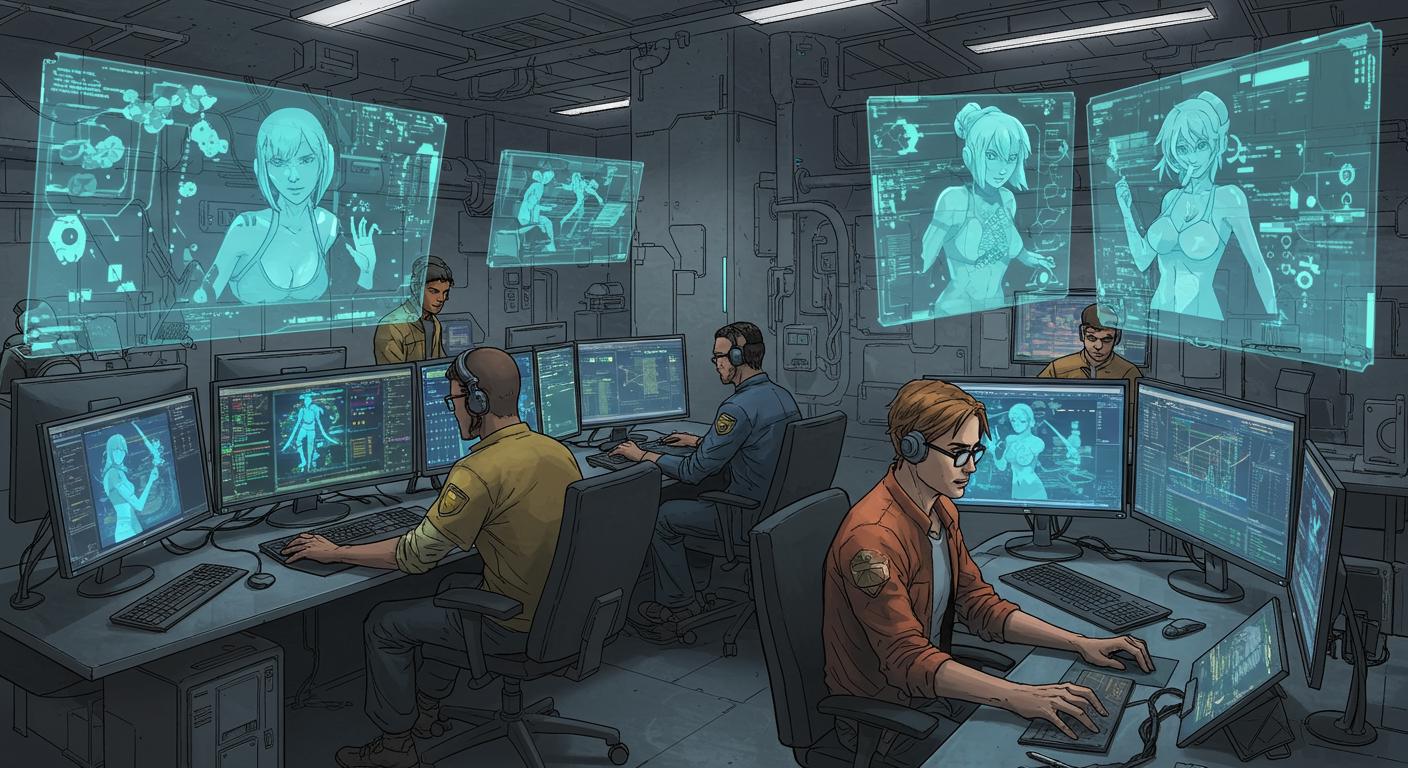If you’ve spent any time exploring the stranger back alleys of internet culture, you know there are certain concepts that sound like the setup to a punchline, only to discover they have quietly breached the mainstream. Case in point: Lowyat.net reports that xAI—the artificial intelligence venture under Elon Musk’s increasingly eccentric umbrella—is now hiring engineers specifically to build “waifus.” No word yet on whether a “Best Girl” algorithm is in beta.
xAI’s Grok Gets (Animated) Company
Earlier in the week, xAI rolled out “companion” avatars for its Grok AI chatbot, an update that includes “Ani”—one of two currently available, and a clear wink to anyone familiar with anime fandom’s lexicon. Reviewing job listings, Lowyat.net points out that the company isn’t bothering with ambiguity: there’s a position for “Fullstack Engineer – Waifus” and another for “Mobile Android Engineer – Waifus.” Each title is about as subtle as a neon sign at a manga convention. For context, the job descriptions explicitly invoke “waifu,” a word lifted straight from Japanese pop culture, signifying an imagined (often animated) “wife”—typically the object of deep affection for certain niche communities.
Lowyat.net underscores that Elon Musk seems intent on demonstrating how “in” and “hip” he is with this subcultural nod. The choice of terminology in the postings could easily double as a recruitment filter—only those fluent in both computer science and meme history need apply. Is this just Musk toying with internet trends, a clever way to find the most culturally literate developers, or a brand of viral marketing unique to 2025?
The Price of Love (or, at Least, Engineering It)
The job listings indicate remarkably high compensation: xAI is offering between $180,000 and $440,000 annually for these roles, a detail highlighted by Lowyat.net alongside the fact that current companion avatars live only in the iOS version of the Grok app—explaining, perhaps, why one of the openings specifically targets Android engineers. Earlier in the report, it’s mentioned that these generous figures are consistent across both positions, suggesting xAI is serious about attracting top-tier talent. All told, this is one of the few times expertise in both scalable architecture and anime-tinged affection have appeared together in a Silicon Valley job description.
One wonders what the interview process actually looks like. “Describe a scalable solution to excessive affection spikes”? Or perhaps, “Outline your experience balancing server loads—and hearts”?
Trend or Techno-Fever Dream?
Digital companions aren’t new, as Lowyat.net reminds us by implication; they’ve existed in some form from dating simulators to chatbots for years. What stands out is a mainstream company like xAI not only embracing but marketing itself around this fragment of subculture. The outlet also notes Musk’s bid to appear ahead of the curve—or at least to tap into whatever’s trending in the mesh of internet and tech culture.
Does any of this actually fill a genuine market need, or are we watching an elaborate show of meme detritus reconstituted as a hiring strategy? Does the world’s most prominent tech baron earnestly believe in the waifu market, or is the real play simply grabbing attention? There’s plenty to puzzle over in these decisions, especially given Musk’s penchant for headline-chasing, but the details themselves are both surreal and undeniably real—engineers are being hunted for their waifu credentials, with six-figure stakes.
Love in the Time of Algorithms
Perhaps, as so often with Musk, the reality lands somewhere between deadpan spectacle and genuine innovation. For some, the “Waifu Engineer” role is a tongue-in-cheek symptom of the line between mainstream and online niche dissolving before our eyes. For others, it might signal that the simulation’s scriptwriters have officially run out of ideas.
And yet, here we are: a major tech company offering top salaries to those capable of marrying code and culture, so that the next generation of AI companions will be tuned to the sensibilities of anime connoisseurs everywhere. Is it a sign that digital oddity is now just business as usual? Or is this simply the new baseline for what counts as “tech innovation” in a world that never blinks at the peculiar?







